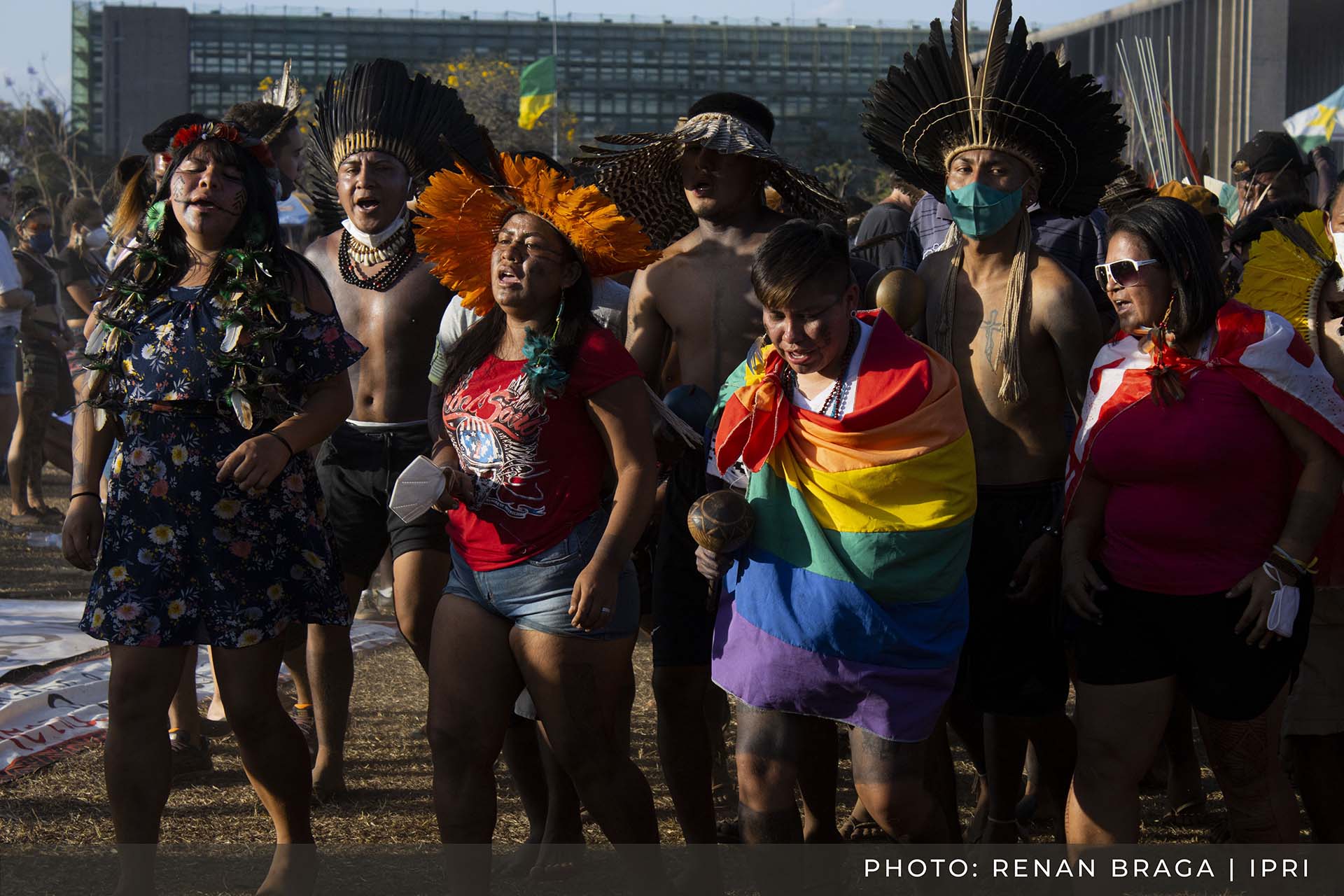- The recognition and protection of indigenous peoples lands, territories and resources is key to the exercise of their human rights.
- At least 239 traditional territories and 114 peoples in voluntary isolation or recent contact will be adversely affected.
- This decision will leave Indigenous Peoples exposed to violence from organized crime groups and the dispossession of their territory for business activities
Indigenous Peoples Rights International (IPRI), an international organization for the defense of Indigenous Peoples’ rights, joins the concerns of indigenous organizations and civil society regarding the legal and administrative acts whereby FUNAI (National Indian Foundation), the federal government’s agency responsible for indigenous policy in Brazil, has excluded non-demarcated indigenous lands from its protection activities.
On December 29, 2021, Circular Letter No. 18 was released, announcing that FUNAI's land protection activities must occur after the administrative demarcation procedure is completed, which means, after the demarcation is homologated by Presidential Decree and the registration of real estate in the name of the Union.
With this measure, about 239 traditional territories and 114 peoples in voluntary isolation and recent contact, with pending demarcation processes, will be affected.
Together with the attempt to establish a “temporary framework” that restricts the recognition and protection of indigenous territories, this new provision adds to the government acts that place Indigenous Peoples in legal uncertainty with respect to their lands, territories and resources
As pointed out in Report A/HRC/33/42/Add.1 by the former Special Rapporteur on the Rights of Indigenous Peoples Victoria Tauli-Corpuz during her mission to Brazil in 2016, an urgent concern of the country's Indigenous Peoples is the need to complete land demarcation processes for the enjoyment of their other rights.
She also highlighted "FUNAI's constructive and proactive role in the protection of Indigenous Peoples' rights and the development of an internationally recognized legal and administrative framework for the demarcation of indigenous lands and the protection of land rights, including cases of isolated Indigenous Peoples."
Brazil has a number of exemplary constitutional provisions on the rights of Indigenous Peoples and was a pioneer in the demarcation of their territories.
At IPRI we observe a worrying setback in the aforementioned demarcation processes, attributed to the weakening of FUNAI and the lack of political will to conclude the demarcation procedures at the ministerial and presidential levels.
In the current political context, this measure that limits the protection of indigenous territories will exacerbate the threats faced by the peoples and leave them highly vulnerable to the actions of criminal organizations, companies and corporations that seek to invade and economically exploit their territories. In fact, these assaults to indigenous territories by these groups are already taking place at an alarming level.
Given this scenario, we call on the Government of Brazil to:
- Suspend Circular Letter no. 18 and its effects, which put at risk the physical and cultural survival of peoples and communities in Brazil.
- Resume the recommendation contained in the aforementioned Report A/HRC/33/42/Add.1, referring to the strengthening of FUNAI, reversing the trend of recent years of weakening mechanisms for the protection of indigenous peoples.
- Comply with its international obligations regarding the full protection and recognition of the right of indigenous peoples to land, territories and resources and to self-determination.


%2020.49.20.png)
